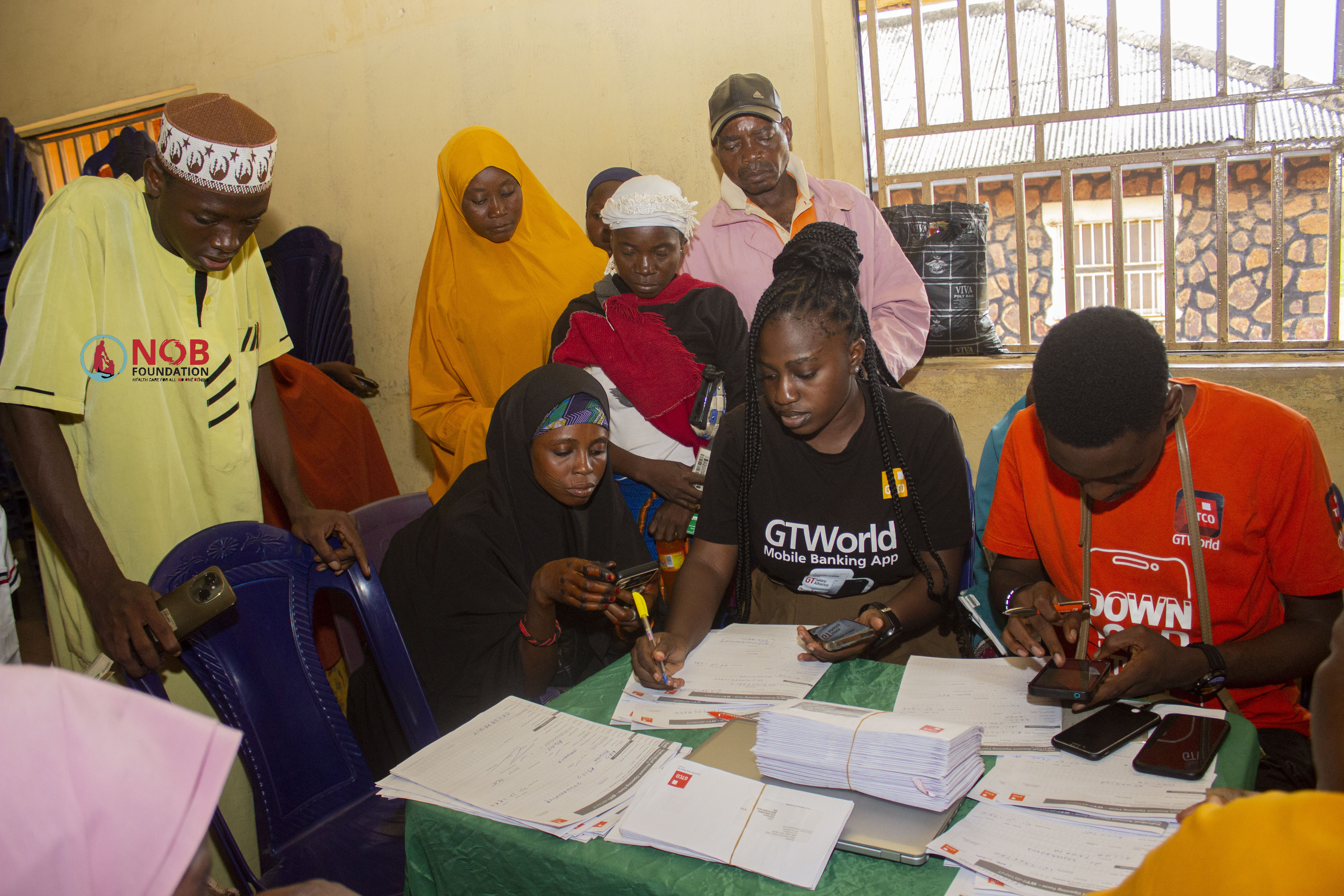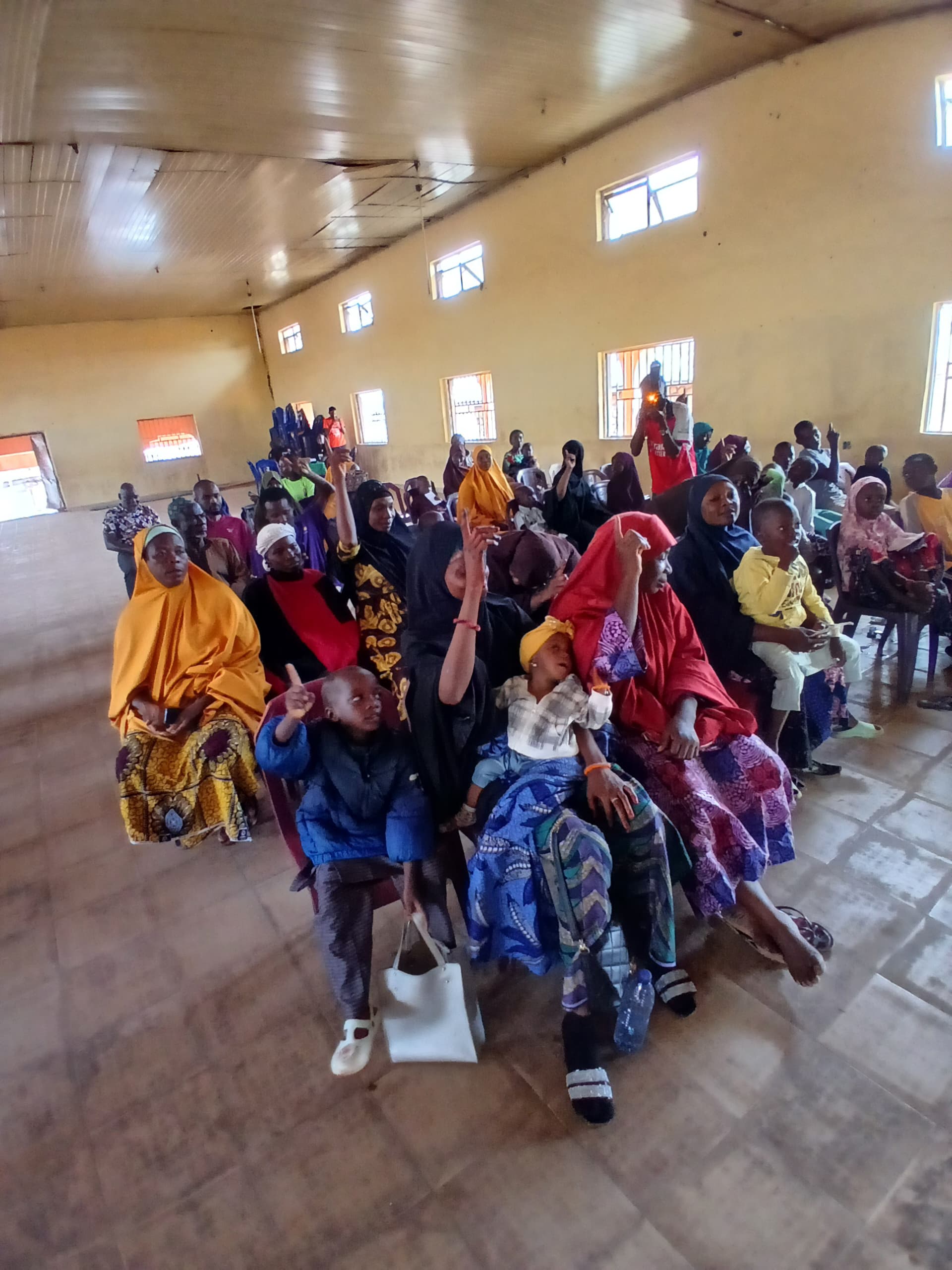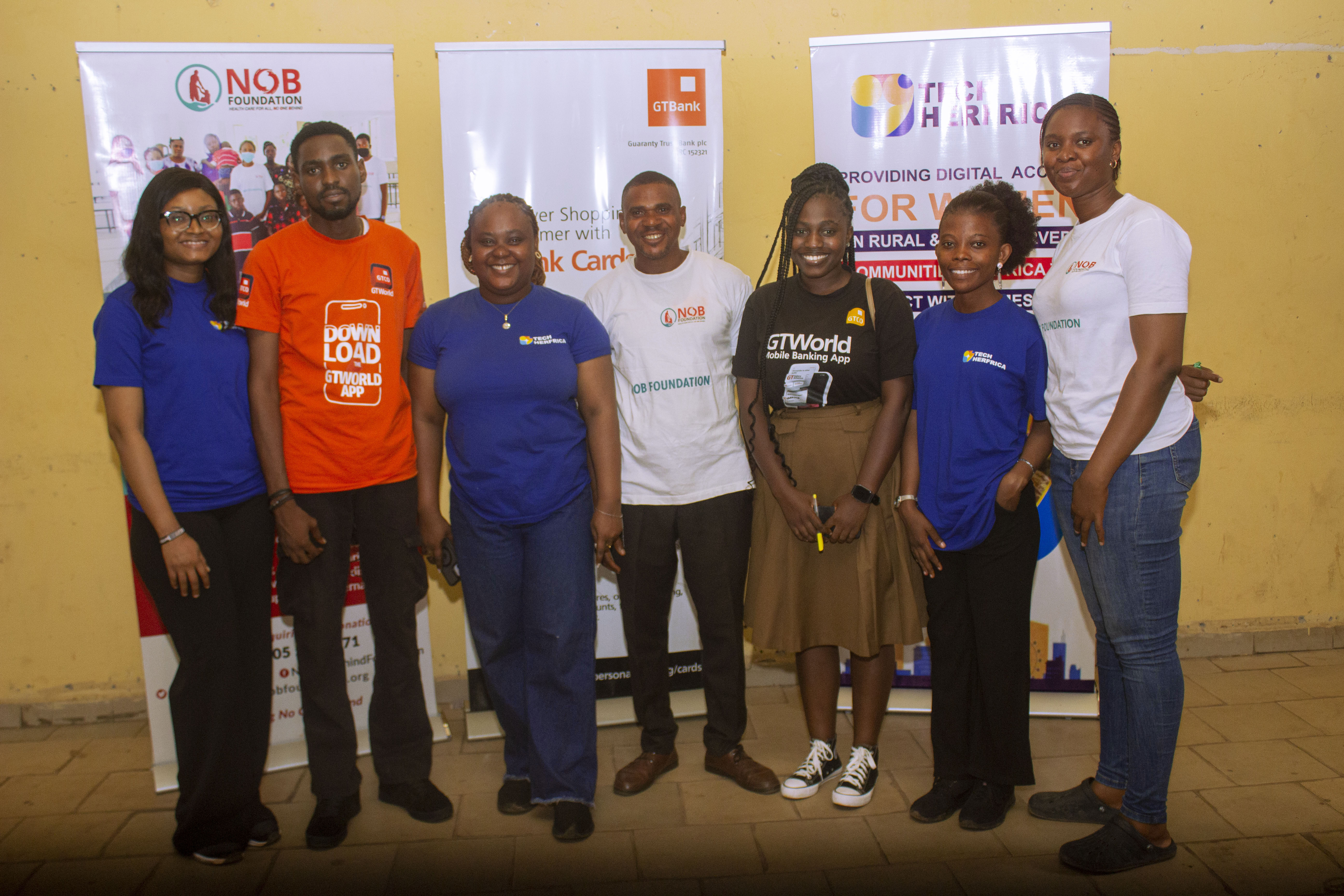Equipping Warrior Mums: Advancing Financial Inclusion and Digital Literacy in Abaji, FCT
1.0 Training Overview
On Saturday, June 14, 2025, Tech Herfrica, in partnership with the Leaving No One Behind (NOB) Foundation, delivered a one-day financial literacy and e-commerce training program in Abaji Area Council, Federal Capital Territory (FCT), Nigeria. This training was strategically held alongside NOB Foundation’s quarterly drug refill outreach for families of individuals living with sickle cell disorder. The event also marked the launch of the Warrior Mums Business Development Project, an initiative designed to empower mothers of sickle cell warriors with income-generating skills and entrepreneurial capacity.
The program specifically targeted these women, equipping them with the financial and digital tools needed to improve income generation, reduce the burden of care, and foster long-term family stability. As part of the training, Tech Herfrica invited its strategic partner, Guaranty Trust Bank (GTBank), as a key collaborator. GTBank facilitated the opening of 65 new bank accounts, including 30 of the 33 women trained, and others, including men and children old enough to operate accounts. Additionally, 52 ATM cards were linked during the session. GTBank representatives were present to guide participants through the onboarding process, educate them on mobile banking, and promote savings habits. They also generously provided branded gift packs to the women.
1.1 Training Focus
The training provided participants with practical knowledge in:
- Basic financial literacy
- Bookkeeping for small businesses
- Practical saving methods
- Introduction to e-commerce
- Using WhatsApp for business visibility and sales
- Opening and effectively managing a bank account
1.2 Training Delivery
The session was delivered in Pidgin with Hausa interpretation to ensure inclusive and effective communication. Real-life demonstrations and participatory discussions were used to bridge the learning gap. A comprehensive pre-assessment helped tailor the training content to the participants’ baseline needs.
Key Pre-Assessment Findings:
- Smartphone Ownership: Only 3 of the women owned smartphones.
- Banking: Just 30.3% had existing bank accounts, largely due to the absence of a bank in their community.
- Digital Identity: 84.85% of participants had National Identification Numbers (NIN), aiding in the account opening process.
- E-commerce Awareness: Only 15.1% were aware of e-commerce prior to the training.
- Digital Skills: Most had limited familiarity with using WhatsApp and Facebook for business.




2.0 Program Outcomes
The training produced the following results:
- Expanded Financial Access: 65 new bank accounts were opened, increasing financial inclusion.
- Improved Knowledge: There was a 90.91% increase in participants foundational knowledge of budgeting, saving, and bookkeeping.
- Digital Business Awareness: 100% of the women left with a clearer understanding of how to leverage WhatsApp for visibility and income.
- Strengthened Confidence: There was an 84.85% increase in interest in structured business practices and digital tools.
- Boosted Community Morale: The gift packs and inclusive delivery method added a positive emotional boost to participants.
3.0 Lessons Learned
1. Community Engagement is Essential
Early engagement through the NOB Foundation’s health-focused work built trust and increased turnout. Collaborative outreach should remain a key strategy.
2. Inclusive Language Delivery Enhances Learning
Training in Pidgin English and Hausa interpretation made learning accessible and relatable. Future programs will develop more materials in local languages to enhance retention.
3. Tailored Financial Solutions Drive Inclusion
The absence of local banking infrastructure had discouraged financial participation. By bringing GTBank to the community, barriers to entry were eliminated. Such partnerships are critical to long-term financial inclusion.
4. Infrastructure Gaps Limit Digital Growth Low smartphone ownership and limited internet access highlight the need for device support and offline training models.
5. Multisector Collaboration is Powerful
The integration of health and economic empowerment services demonstrated the value of cross-sector partnerships in maximizing community impact.
4.0 Sustainability Strategy
To ensure lasting impact, Tech Herfrica will:
- Expand Localized Content: Continue adapting content to community needs and languages.
- Strengthen Partnerships: Work with banks, NGOs, and local leaders to scale outreach.
- Empower Local Trainers: Identify and train community facilitators for program continuity.
- Monitor Impact: Track changes in savings behavior, business growth, and digital engagement over time.
- Promote Device Access: Explore partnerships to provide affordable smartphones and data packages.
5.0 Conclusion
The Abaji training successfully bridged the gap between health support and economic empowerment by equipping mothers of sickle cell warriors with digital and financial tools for growth. Through its partnership with the NOB Foundation and collaboration with GTBank, Tech Herfrica continues to champion inclusive, community-centered development that uplifts rural women and strengthens their resilience.

